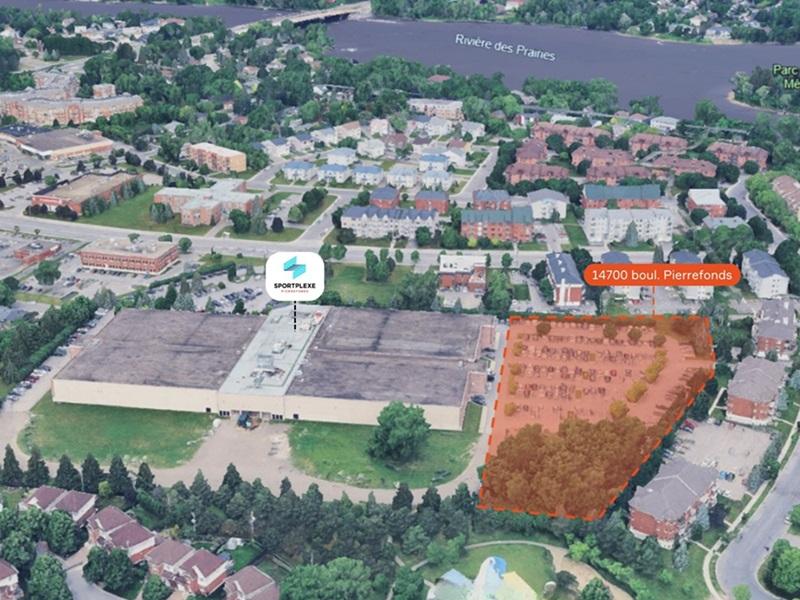Royal LePage released a market survey recently that tracked how condo costs are surging faster than those for detached homes in major markets across the country. This raises interesting questions about where supply and demand for any form of multiresidential housing is headed, and why.
The Royal LePage report found, “with the exception of Vancouver, the median price per square foot of a condo is now higher than that of a single-family detached home nationwide.”
My hometown of Ottawa logged the biggest gain. The condo price per square foot for Greater Ottawa jumped by 17.9 per cent year-over-year to $395. Meanwhile, the median price per square foot of a single-family detached home over the same period rose by 8.5 per cent to $265.
The price per square foot in the Greater Vancouver area actually declined the most among the urban centres surveyed, though it does remain the most expensive condo market in the country.
In the City of Vancouver itself, condo owners pay a whopping $1,044 per square foot, compared to $1,279 per square foot for a single-family detached home.
Multires supply vs. demand
Depending on your economist’s bent, is the issue that is driving up condo prices on the supply or demand side? They are not inexpensive, but clearly provide utility a lot of buyers want, for easier living and property maintenance.
They also often occupy great locations for services, amenities and public transit. For urban planners, condos also make great sense in terms of intensification of land uses to curtail suburban sprawl.
Royal LePage’s commentary in the report supports this, from both the Ottawa perspective:
“Inventory levels in the Ottawa market continue to be very low for both condos and detached homes, contributing to price increases. Demand remains high and listings are selling quickly.
“We are seeing significant interest in Ottawa’s south and west ends from residents working in the nearby military and technology hubs.”
And the national perspective:
“In Canada’s largest cities, many younger buyers searching for affordability and baby boomers looking for maintenance-free living purchase condominiums.
“Not surprisingly, that strong demand has pushed up price per square foot, with the exception of Vancouver and Calgary. Buyers are adapting by purchasing smaller units, especially among those looking for entry-level properties.”
All of which is vitally important for the developers who commit to build these things because the negative from their perspective is that you have to build them all at once and trust market demand will last long enough to yield a decent return.
Developers gamble for profits
Many years ago, when there were no electronic databases to call upon, I was doing an absorption survey.
One developer on whom I called was Y.C. Lee, an architect who had developed a project in Centretown in Ottawa. I asked him one question about how the absorption had gone.
His response was priceless: “Mr. Clark, you are using the wrong verb tense. I am eight years into this project and I still have inventory.”
The challenge with this type of development is that the final profit comes from the last 10 to 20 per cent of the project sales. This leaves the developer on the hook to accurately predict the future to ensure a sellout, by bringing the project to market while the market is still on an upswing.
This presents obvious challenges and not all locations that might be zoned for high-rise development have a sufficiently strong market demand for a project to sell out at a profit.
Some people like to rant at developers, but they are building housing people want and need. They simply wouldn’t build something people don’t want. Or, at least they wouldn’t too many times before ending up bankrupt.
Mixed feelings about condos
Despite the current upward trend for condos in Canada, many people are afraid of condo ownership. It would be interesting to know why.
Some real estate lawyers I know don’t recommend this type of ownership, but it really is not new. In Europe, or at least in Britain, there are many situations where multi-unit properties have multiple owner-occupants and have for a long time.
In fact, under England’s well-established leasehold form of ownership, the leaseholder (tenant) and the freeholder (a.k.a. landlord) will enter into a covenant much like a condo arrangement here.
The freeholder will be responsible for maintaining the common parts of the building. The leaseholder will pay maintenance fees, other annual service charges and a share of the building’s insurance.
These leases, which are marketable, commonly range from 40 to 120 years, and in some instances, 999 years!
In Canada, one of the likely concerns about condos is that you own a building in partnership with others.
With freehold ownership of a house in a city, when something goes wrong it’s either your problem or the city’s. If it’s the city’s, then you deal with them.
But, to deal with issues or to get things done in a condo situation, the owners and the condo board must work together and achieve consensus, or at least a sufficient majority.
Can’t we all just get along?
Perhaps the challenge with condo ownership is that not enough people understand how to work on a board, and from time to time there will be some individual who engages in shenanigans that drive their neighbours around the bend.
An alternative to the condo is the purpose-built rental apartment. Demand for this type of multiresidential housing has undergone a bit of a renaissance of late. New higher-end and quality options are coming to markets like Ottawa to replenish aging stock.
The attraction here is the occupant basically enters into a contract for services with the building owner.
Occupants needn’t work with each other on a board. Rather, the key to successful living is a shared vision between tenant and owner on what services are being provided, what the tenant pays for and what behaviours are permissible on site.
In the world of aging baby boomers, there are going to be many people who may cash out of a valuable detached house for a quality apartment where they pay rent and are prepared to pay for quality services.
But, if you live in a multi-unit building, whether it’s a condo, a long-term lease, or a rental, you will have to deal with people more directly than if you own a detached house.
Never forget the north of England phrase: “There’s nowt so queer as folk.”
To discuss this or any valuation topic in the context of your property, please contact me at jclark@regionalgroup.com. I am always interested in your feedback and suggestions for future articles.







